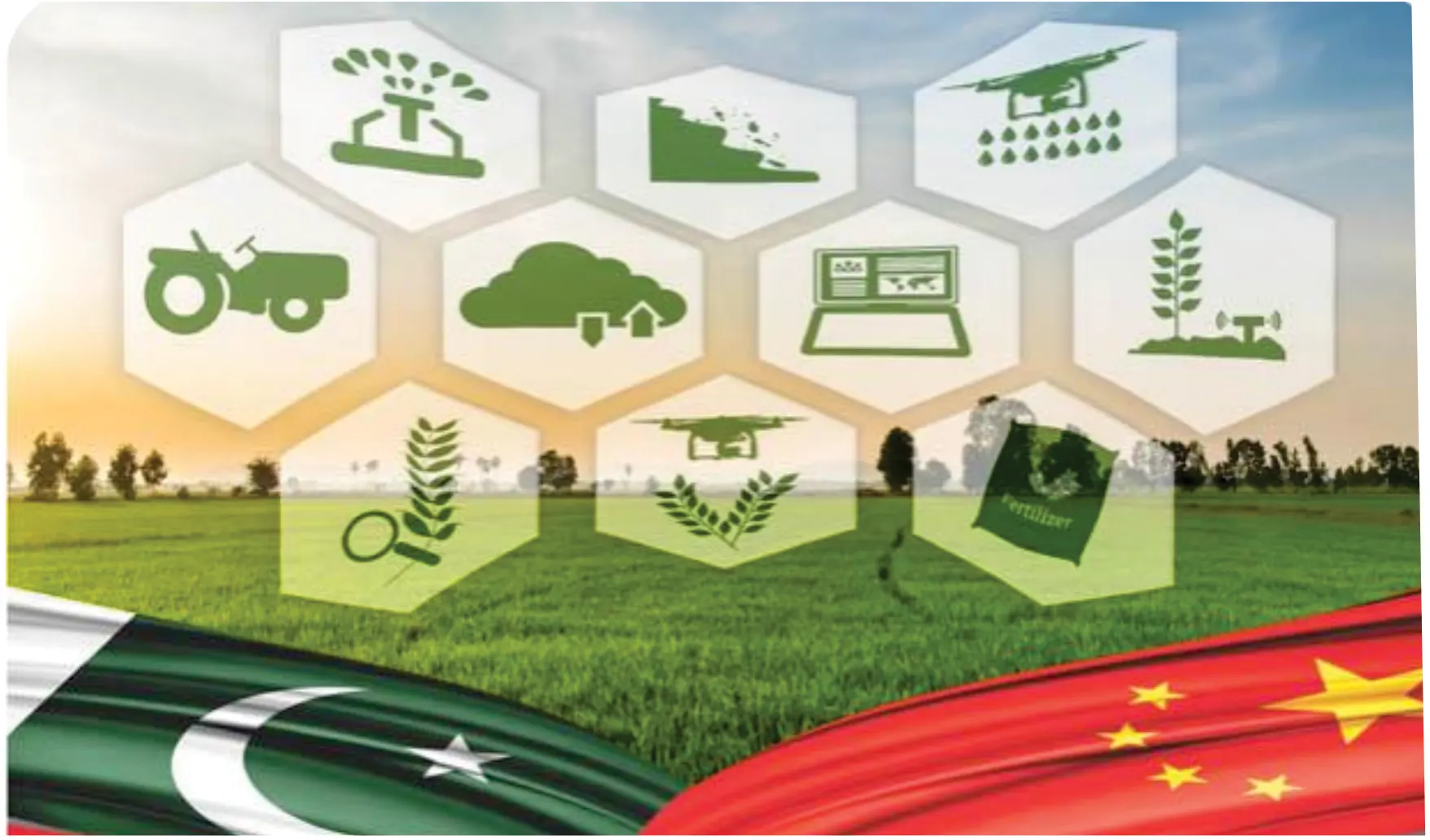China is at the forefront of a revolution in sustainable agriculture, harmonizing high productivity with eco-friendly practices.
China is at the forefront of a revolution in sustainable agriculture, harmonizing high productivity with eco-friendly practices. This innovative approach offers valuable lessons for countries like Pakistan, which are seeking to improve their agricultural systems amid climate change challenges.
“Sustainable farming practices are increasingly gaining attention as countries strive to address the challenges posed by climate change and ensure food security. As we know, Pakistan grapples with climate challenges impacting its agricultural sector.
Lessons from China’s innovative climate-smart farming practices offer valuable insights as China has been at the forefront of integrating sustainable farming innovations,” said Arif Goheer, Head of Agriculture, Forestry and Land Use Section, Global Change Impact Studies Centre, Ministry of Climate Change.
In an interview with WealthPK, Goheer highlighted the core of China’s strategy: climate-smart agroecosystems. These systems integrate advanced technologies, conservation practices, and sustainable farming methods, creating a comprehensive approach that not only boosts productivity but also mitigates the impact of climate change.
“These systems not only boost agricultural productivity but also mitigate the impact of climate change, reduce reliance on chemical fertilizers, promote organic farming, and protect soil health. Such comprehensive strategies resonate strongly with the global push for sustainable development,” Goheer explained.
One key aspect of China’s success is precision agriculture, which leverages technologies like drones, sensors, and GPS mapping. This allows farmers to optimize resource utilization, minimize waste, and enhance crop management precision. “This approach not only increases yields but also promotes sustainable land use practices, crucial for long-term agricultural sustainability,” Goheer noted.
Water-saving technologies have also been pivotal in China’s agricultural advancements. Techniques such as drip irrigation, rainwater harvesting systems, and efficient water management strategies conserve water resources, mitigate drought risks, and improve water use efficiency. These innovations are particularly relevant for water-stressed regions like Pakistan.
Moreover, China’s emphasis on data-driven decision-making, utilizing big data analytics, artificial intelligence, and Internet of Things devices, has transformed farming practices. Data-driven insights facilitate predictive modeling, pest and disease monitoring, and crop health assessments, providing farmers with actionable information for efficient decision-making and risk management.
Goheer also pointed out that China’s ability to balance agricultural productivity with environmental protection has garnered global praise. China’s agroecosystems are a prime example of managing agricultural resources effectively while safeguarding the environment.
For Pakistan, adopting China’s climate-smart systems and sustainable farming innovations could lead to transformative changes in its agricultural outlook. “Embracing precision agriculture techniques, implementing water-saving technologies, integrating renewable energy sources, and leveraging data-driven approaches can enhance productivity, reduce environmental impact, and build resilience against climate challenges,” Goheer said.
As Pakistan faces severe climate change challenges, the insights gained from China’s experience could be instrumental in shaping a more sustainable and productive agricultural sector. By learning from China’s innovative practices, Pakistan has the potential to revolutionize its farming methods, ensuring food security and environmental sustainability for the future.
In conclusion, China’s leadership in sustainable agriculture provides a roadmap for countries like Pakistan. The integration of cutting-edge technologies, efficient water management, and data-driven approaches can significantly improve agricultural productivity while addressing environmental concerns. As nations around the world strive for sustainability, China’s example offers a valuable blueprint for achieving a balanced and eco-friendly agricultural system.
